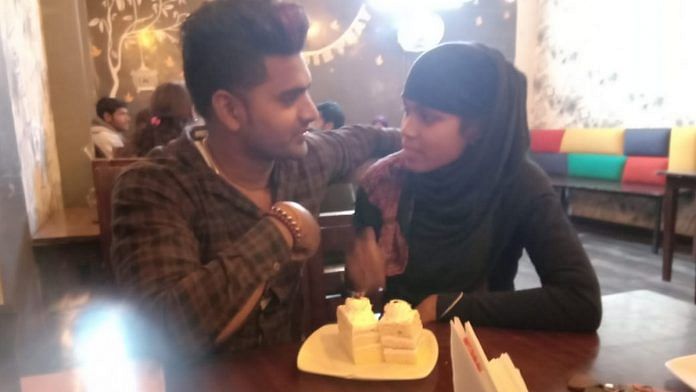
Dausa/Jodhpur/Rohtak/Jhajjar: “Jijaji”, brother-in-law, is how Nisha still sometimes refers to her husband. As she sits on a charpayi, fresh sindoor in her hair, Nisha relates a story of a passionate, forbidden romance. Except it’s not hers and jijaji’s. To her, he’s just life insurance, literally.
Last year, Nisha’s older sister Pinki did the unthinkable: she left her husband and eloped with her lover, a Dalit. The rest seemed inevitable: her father eventually chased her down and strangled her to death. Nisha was upset, but not surprised.
“We don’t have permission to fall in love. Didi went and fell for a chhoti jaat waala (lower caste person)… she had to die. I don’t want to die,” she says. Soon after her sister’s death, 16-year-old Nisha was married to her brother-in-law, as ‘compensation’.
“Jijaji hi ab mere pati hai (Jijaji is my husband now),” she says.
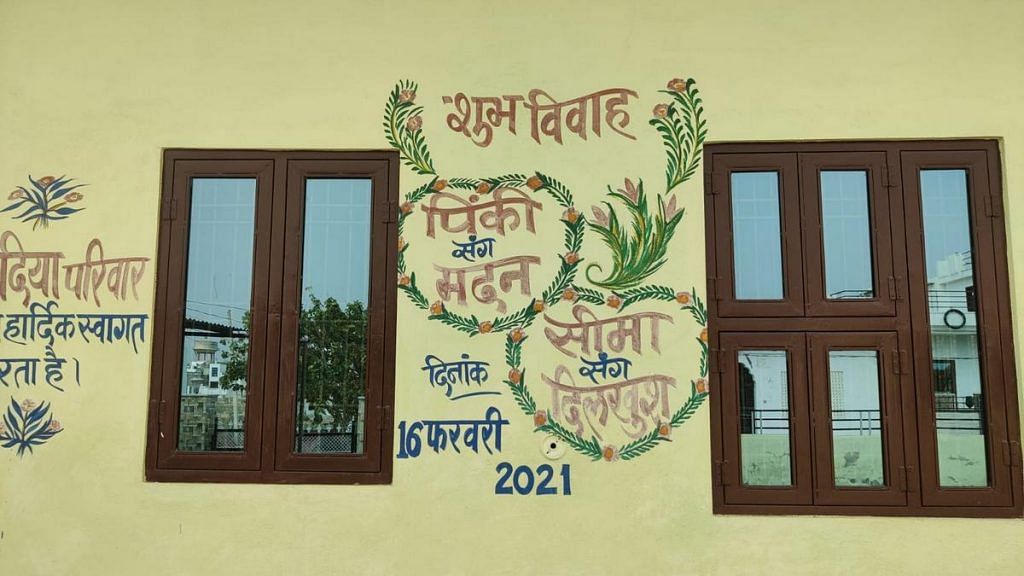
This, though, is not Nisha’s story but that of Pinki and others like her who even today lose their lives at the intersection of gender- and caste-based violence.
These so-called ‘honour killings’ often pop up in the news — couples charred to death, women found with their throats slashed ear to ear, police looking the other way in deference to village kangaroo courts.
What’s often missing are the stories behind the ‘incidents’ and statistics: of the couples, the people they were, the consequences of what was done to them — especially the women who, to paraphrase Juliet, had their only love spring from their family’s only hate.
ThePrint traced some of these stories in Rajasthan and Haryana, where notions of izzat (honour) are deeply linked with tradition, caste, and patriarchy, which to many matter more than life and liberty. For those intent on spilling blood to earn back their izzat, even court rulings, orders for police protection, and safe houses are mere inconveniences at best.
Also Read: ‘You will cry forever’ — How a brother killed sister’s husband in Haryana ‘honour killing’
Pinki and Roshan: Fear, defiance, death
He isn’t sure if it was love at first sight, but Roshan Lal Mahavar knows that the first time he and Pinki Saini locked eyes outside her school for girls in Jalrabas village, Dausa (Rajasthan), something special passed between them.
It was 2018 and Pinki was only 17 years old. Roshan, in contrast, was a man of the world who was preparing for the UPSC exams and also owned a gym.
For another year, the two didn’t speak to each other — but they did communicate clearly, unmistakably, and daily through their glances and smiles across the dusty road in Dausa. During this period, they did not even swap numbers, or send a friend request on social media.
“Pinki did not even know about Facebook and didn’t have a phone,” Roshan says.
After Pinki passed her final school exams, things started changing. She and Rohan finally started speaking to each other and meeting at a small bakery in the village.
Roshan vividly remembers how terrified she was at first about being seen, even covering herself up with a burqa so no one would recognise her.
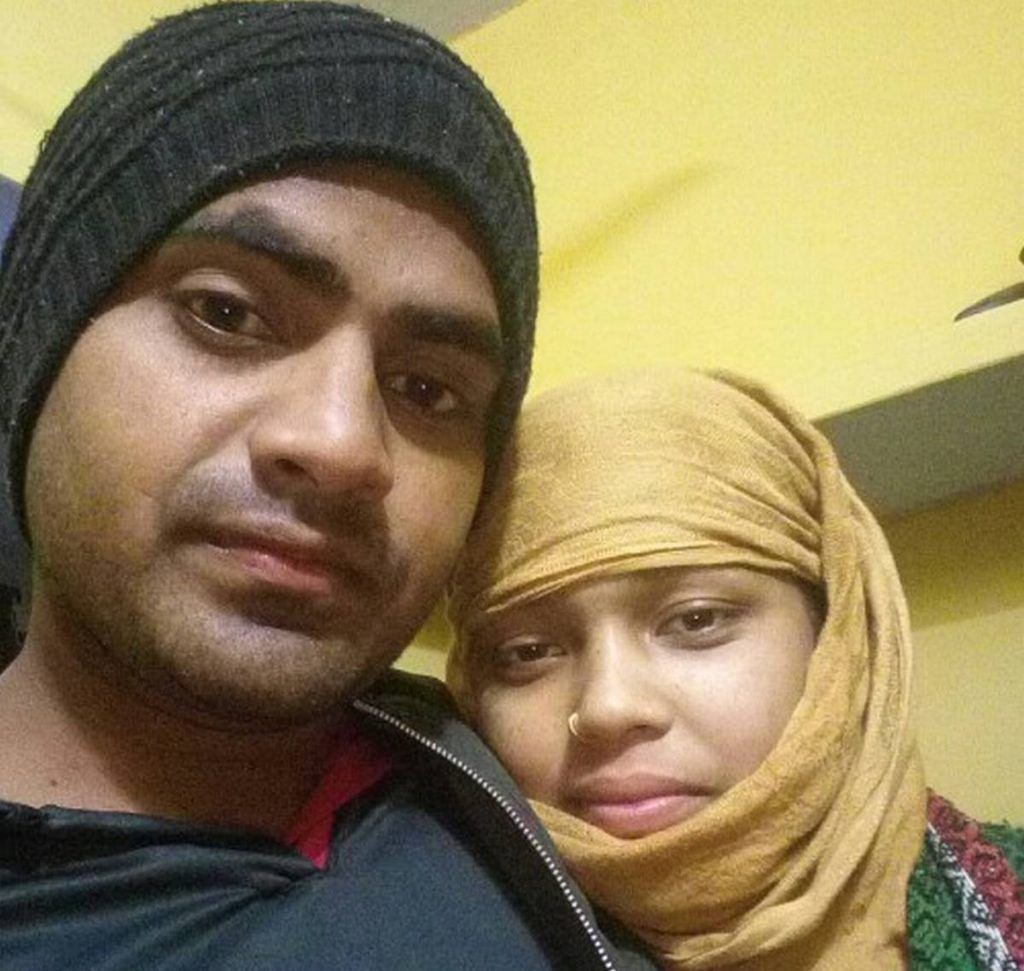
Roshan told her that perhaps she should not take the risk at all, but she wouldn’t hear of it. Whatever she was doing, she was doing for love and it was worth the risk, she told him.
As the couple’s relationship grew deeper, Pinki decided to take the most terrifying plunge of all in 2020: tell her parents that she was in love and wanted to get married.
Unsurprisingly, her parents flew into a rage. Her father beat her up and told her she could forget about studying further. She had, after all, disgraced her family by falling for a “lower caste boy”.
It became impossible for the couple to meet, with Pinki’s every movement now being closely tracked by her family, but the couple still found ways to, if only, look at each other — at parks, outside shops, across the road.
Then, in February 2021, Pinki’s father informed her that the family had found a ‘suitable’ groom for her and she would be marrying him in a few days. Her opinion was not solicited.
Pinki went along with the wedding, but there was mutiny in her mind.
A week after tying the knot, she returned to Dausa and eloped with Roshan. Both, though, were acutely aware that a happily ever after would not be possible without help.
The couple immediately left for Jaipur and with the help of a lawyer approached the Rajasthan High Court for protection. The court then asked the police to protect the couple.
Had Pinki and Roshan stayed on in Jaipur, things might have gone differently for them. But on 1 March, the couple returned to Dausa.
“Bas ek galti ho gayi, Dausa wapis nahi aana chahiye tha (We just did one big mistake. We should never have come back to Dausa),” Roshan says, as tears fall down his face.
Within an hour of the couple returning to Roshan’s family home, trouble began after neighbours who belonged to the same caste as Pinki spotted them. They informed Pinki’s parents.
Despite the high court’s ruling, there was no police protection for them as a mob of 40 to 50 people closed in on Roshan’s house and dragged Pinki away.
“I could not fight all of them, but I really tried,” Roshan says. The last image he has of Pinki is of her being taken away to her father’s house. He never saw her again.
On 3 March 2021, Pinki’s father surrendered to the police and confessed he had strangled her to death for “honour”.
At Pinki’s village Ramkund, about 5km from Roshan’s home, life goes on. Her father is in prison, but her mother, who was also arrested on abduction charges, is out on bail. The family has seen another wedding too: of Nisha with her “jijiaji”.
When asked whether she regrets what happened, Pinki’s mother says matter of fact: “We trusted her, and look what she did. Humari izzat kharab kar di (she ruined our honour) by running away with a low-caste man.”
Pinki’s death was “written in her fate”, her mother sighs.
“Usey chhod dete toh kya hamein jeene dete samaaj waale (If we had let her live, would the society have allowed us to survive)?”
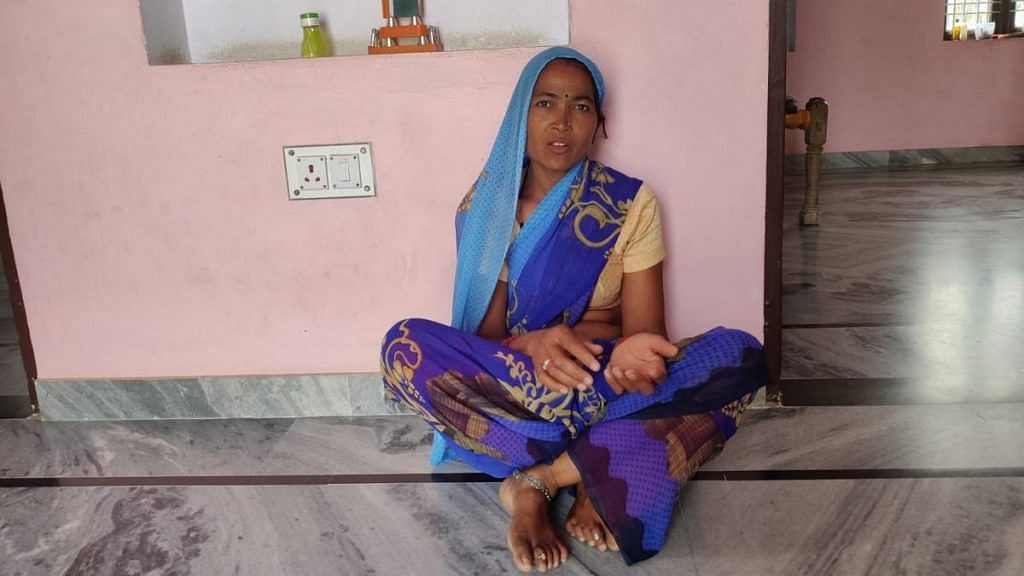
Also Read: Gangraped in teens, visiting courts as grandmothers: 1992 Ajmer horror is an open wound
She became a cop for love, but still fell victim
When Saroj Virath was a teenager, she loved visiting her uncle’s house in Jodhpur, not far from her home in a village called Osian. One of the main attractions from 2010 onwards was her uncle’s next-door neighbour, Hemant Mohanpuriya, who was around the same age as her.
Neither had a mobile phone to stay in touch, but for five days every year, they took what they could from each other’s company.
When Saroj and Hemant finished school, they made big plans to study at the same college. But it did not happen. Only after a lot of coaxing and cajoling did Saroj’s parents allow her to get a distance learning degree from Jodhpur National University. Hemant also took admission in the Indira Gandhi National Open University (IGNOU) for a BA degree.
The couple’s sporadic meetings continued. Saroj would come to Jodhpur for her exams. For that one day, the two would soak up each other’s company.
“We used to go to parks because neither of us had any money to go to a restaurant or hotel,” Hemant says. “We’d sit down at a public place and spend time just looking at each other.”
In 2016, when they were finally through with college, Saroj and Hemant decided to announce their desire to marry each other. Hemant’s family agreed — but Saroj’s responded with fists.
While both Hemant and Saroj come from Scheduled Caste communities, there is a hierarchy here too. Hemant’s was a Reigar family, and hers Meghwal — a rung up in the social hierarchy ladder. And so, Saroj too was beaten and hounded for wanting to marry a “lower caste” man.
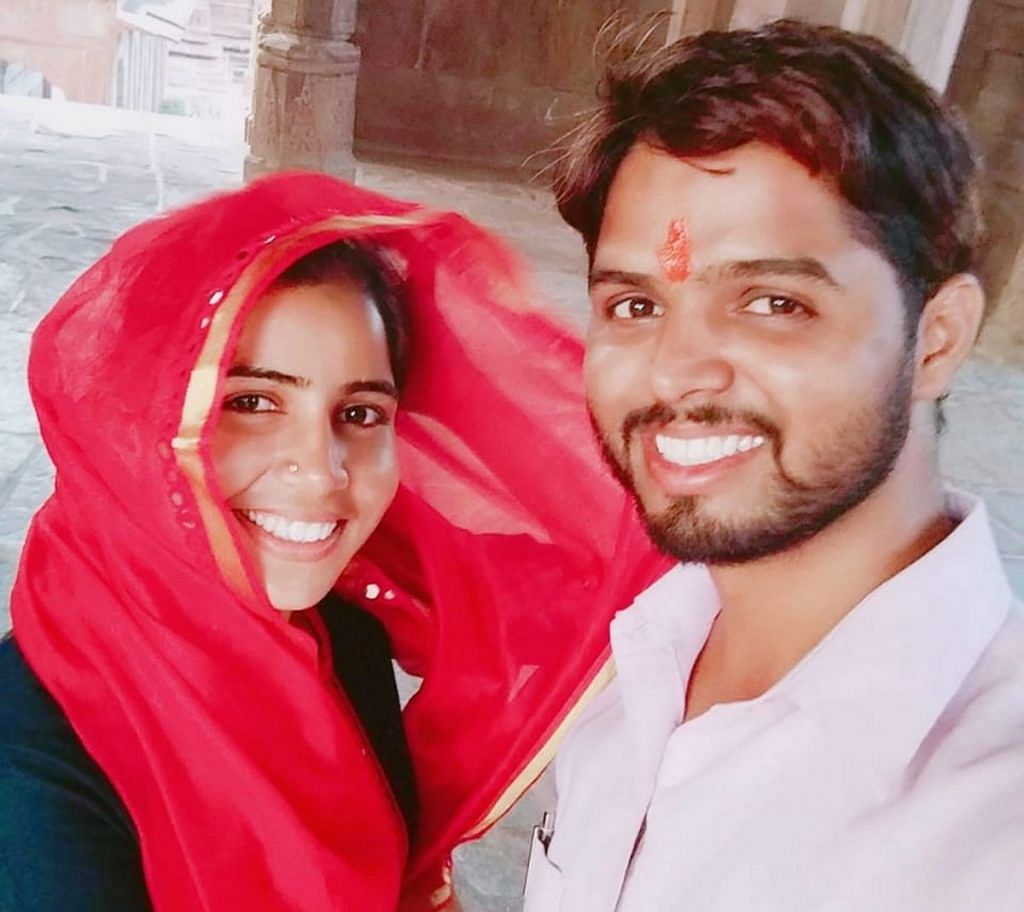
However, Saroj had a steely side to her and worked to realise her dream of becoming a police officer so she could gain independence.
In 2017, she cleared the exam to become a constable in the Rajasthan Police and was posted at the women’s station in Jodhpur. Hemant, meanwhile, shifted to Jaipur to prepare for the civil services exam.
“We had small torchlight phones and we used to talk all night because that was the only time Saroj’s brother, with whom she was staying, would be asleep,” Hemant says. “She had to report for duty in the morning but she would still talk to me late at night for love.”
This fragile equilibrium was disrupted in 2018, when Saroj’s family started pressuring her — with threats and beatings, allegedly — to marry a man to whom she had been allegedly betrothed as a child. Saroj fought back.
In December that year, she registered a complaint with the Rajasthan State Commission for Women, which asked the police to give her protection.
Saroj then shifted out of her brother’s place, who was also a police officer, and moved to a safe house. Through all of this, she warned Hemant to stay away from Jodhpur because she feared his life would be in danger there.
“We thought we’d have our entire lives to see each other, and that we just needed to fight for our love for a while,” Hemant, now 27, says. “We did not know the destiny that awaited us.”
In January 2019, Saroj’s brother registered an FIR against Hemant, alleging that he had abducted Saroj, and then came to the safe house to tell her to prove otherwise in court.
This was enough to get Saroj out of the safe house. She went to the court and gave a statement against her parents in front of the magistrate.
However, just a week later, her parents abducted her from outside the women’s thana in Jodhpur and forcefully took her back to Osian.
“I was on a phone call with Saroj when I could suddenly hear her screaming… and then the call was disconnected. That was the last time I heard her voice,” Hemant says. Four days later, Saroj was found hanging in her house in Osian.
The police have charged Saroj’s parents with abetment to suicide, but Hemant alleges that it is a case of “honour killing”; charges are yet to be framed in the case and the matter is currently sub-judice in the Jodhpur Sessions Court.
“Forget about loving someone again, I am unable to live with the guilt that the woman I loved got killed because of me, because of my caste,” Hemant says. “I will never be able to forgive myself. I am just a living corpse. I died with her.”
‘Will kill you before you can even think of marrying a Dalit’
Love is bad news in many parts of India, but statistics do not necessarily give a complete picture, partly because many cases of harassment or killing never get registered.
Last year, the government of India told the Lok Sabha that there were 145 ‘honour killing’ incidents in the country between 2017 and 2019. However, the 2020 ‘Crime in India’ report of the National Crime Records Bureau (NCRB) attributed ‘only’ 25 deaths to ‘honour killing’, 27 to ‘casteism’, and 1,558 to ‘illicit relationship’. On the ground, though, these motives often intersect.
Last year, the Punjab and Haryana High Court recommended that Punjab, Haryana, and Chandigarh should establish safe houses to protect couples who “performed marriage against the wishes of their parents and relatives” or wanted to be in a live-in relationship. This, the court said, would give immediate protection to couples whose petitions might get mixed up with others that did not entail an imminent threat to life or liberty.
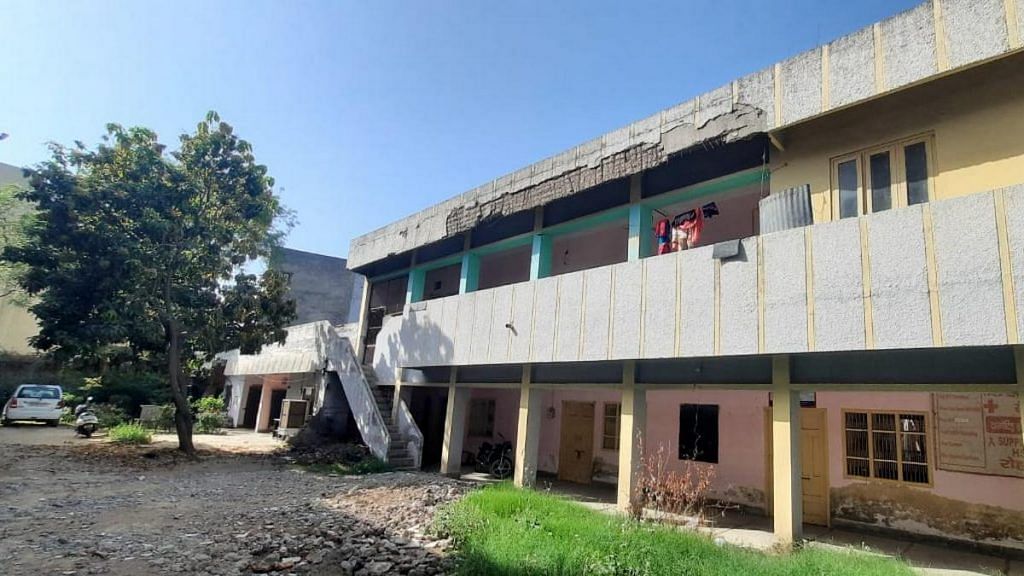
In many such cases, “inter-caste” love affair is the trigger for homicidal rage and brutal diktats from informal — but enormously powerful — village community councils known as khap panchayats.
Rajesh and Kusum*, both in their late 20s, live in Haryana. He is a Dalit from Sonipat and she is a Jat from Rohtak district. The fact that they are in love puts them in grave danger.
Haryana is infamous as one of the worst states in India in terms of violence against women. One aspect of this is that women are seen as repositories of caste ‘honour’. For them to fall in love with anyone from a proscribed community is viewed as a threat to the entire clan and lineage.
Kusum and Rajesh met during a theatre class in 2018 and didn’t think to ask each other’s caste before falling in love. They got married in court and live in hiding. Kusum is pregnant, which she says only heightens the danger.
“I have sleepless nights because I fear that my parents will kill me and my child,” she says.
Kusum recalls that when she came to the city to join the theatre group — which, ironically, focused on plays dealing with social evils — her father warned her against “misusing” the liberty she had been granted.
When her relationship with Rajesh grew serious, she did not even try to convince her family to accept it.
“Since childhood, I have seen many girls getting killed in the name of family honour,” she says. “I thought times have changed but I was mistaken. I gave my parents a hint in 2019 once and my father slapped me and said ‘We’ll kill you before even the thought of marrying a Dalit crosses your mind’.”
Kusum and her husband live in another state, but even now they can’t help but look behind their shoulders to check if their past has caught up with them.
Also Read: Dalit women often face sexual violence because of, yes, their caste
‘Govts and courts can’t change how our society functions’
Khap panchayats do not have any legal authority and are not officially recognised by the government. In fact, in 2018, the Supreme Court said that their interference in marriages was “absolutely illegal”. However, these councils continue to exert a great deal of moral authority in several parts of India, including Haryana.
A member of the Jat community from Haryana’s Jind district, Lakshmi Devi*, 62, gave up her daughter to her relatives soon after she was born because, as a widow, she did not have the resources to look after her. When her daughter was 23, she fell in love with a Dalit man and married him in court in 2019. Her adoptive parents, however, found out where she was hiding and sent hired goons after her. Lakshmi’s daughter and son-in-law were killed in broad daylight in 2020.
Lakshmi understands why the killings “had to happen”: had her daughter’s adoptive parents not had her killed, they would have been ostracised. They had to “lead by example” so no other girl from the community would dare meet glances with a “lower caste” boy.
“There is still pressure from the khap panchayats,” Lakshmi says. “The mindset of the people hasn’t changed. Marrying someone from a lower caste is still considered a sin and this is what makes us kill our own children. I feel sorry for the kids, but I am a nobody,” she says.
A khap member from Jhajjar district in Haryana, speaking to ThePrint under the condition of anonymity, says that “times are changing”, but the khap still wields power in society.
“We cannot stop girls and boys from venturing out and getting education but that does not mean that we will not stop them from getting married to someone outside their caste. This is how society functions and nobody can change that, not even government or court,” he says.
“If not through violence, we will retain this system by instilling fear in the minds of the children and their families.”
* Some names have been changed to protect identity.
(Edited by Asavari Singh)

COMMENTS